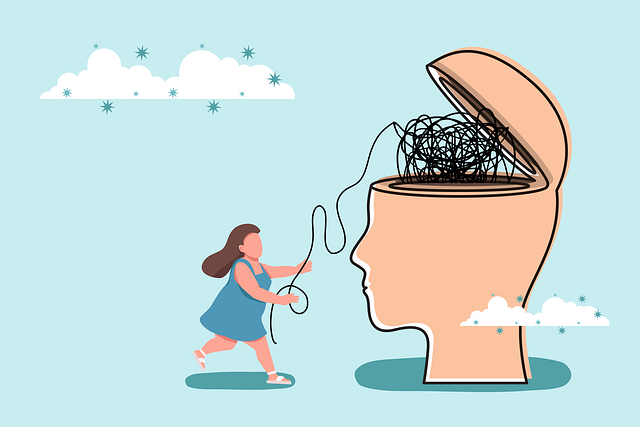Mental health policies play a pivotal role in supporting adolescents and individuals in polyamorous or open relationships by shaping access to therapy, reducing stigma, and promoting specialized care. Early intervention is crucial for teen mental health, especially with the rise of acceptance for non-traditional family structures like polyamory. These policies should include community education to empower self-care, emotional intelligence training, and culturally competent healthcare providers to address the unique needs of adolescents and those in diverse relationships, ensuring inclusive and effective therapy tailored to their experiences.
Mental health policies significantly shape society’s response to individual well-being, especially for vulnerable populations like adolescent teens. This article delves into two critical areas: understanding mental health policy and its profound impact on adolescents, and exploring the unique challenges faced by polyamorous and open relationships, advocating for inclusive policies to support these communities. Furthermore, it presents effective advocacy strategies aimed at enhancing access to therapy services, particularly focusing on gaps in current offerings and proposing targeted solutions for adolescents in need of mental health support.
- Understanding Mental Health Policy and its Impact on Vulnerable Populations
- – Exploring the role of mental health policies in society
- – Focusing on adolescent teens: A vulnerable demographic
Understanding Mental Health Policy and its Impact on Vulnerable Populations

Mental health policies play a pivotal role in shaping support systems for vulnerable populations, including adolescents and those in polyamorous or open relationships. These policies dictate access to vital resources such as therapy, influencing the quality and availability of care. For teenagers navigating mental health challenges, early intervention and specialized treatment are crucial. Policies that promote public awareness campaigns development can help reduce stigma, encouraging teens to seek assistance without fear of judgment.
Furthermore, considering the unique needs of polyamorous and open relationships in mental health policy is essential. These non-traditional family structures may face specific stressors and challenges, requiring tailored support and acceptance. Integrating stress reduction methods and providing education through community organizations can empower individuals within these relationships to manage their mental well-being effectively.
– Exploring the role of mental health policies in society

Mental health policies play a pivotal role in shaping society’s approach to emotional well-being and mental health care. These policies are instrumental in ensuring access to essential services, promoting awareness, and reducing the stigma associated with mental illness. In today’s diverse social landscape, where concepts like polyamorous and open relationships are gaining acceptance, mental health initiatives must evolve to cater to these unique needs. For instance, policies supporting therapy for adolescent teens can significantly impact their ability to navigate complex emotions and challenges during this formative period.
The integration of self-care routine development for better mental health is another crucial aspect. Encouraging emotional intelligence and resilience building among individuals empowers them to manage stress and promote overall well-being. This proactive approach, supported by comprehensive policies, can lead to a more resilient society where people are equipped to handle mental health issues effectively, fostering healthier relationships, including polyamorous and open ones, with increased emotional understanding and awareness.
– Focusing on adolescent teens: A vulnerable demographic

Adolescent teens are a particularly vulnerable demographic when it comes to mental health issues. This age group faces unique pressures, including navigating identity formation, academic demands, social dynamics, and emerging sexualities. For example, individuals exploring polyamorous or open relationships may struggle to find culturally competent healthcare providers who understand the specific challenges they face. This lack of understanding can lead to misdiagnoses or inadequate treatment plans.
Focusing on therapy for adolescent teens must include approaches that cater to their developmental stage and diverse experiences. Self-esteem improvement and social skills training are essential components, as these can help teens build resilience and navigate interpersonal relationships with greater ease. Moreover, ensuring healthcare provider cultural competency training is vital to create an inclusive environment where teens feel comfortable discussing sensitive topics related to sexual orientation and relationship structures.
Mental health policy analysis reveals a profound impact on vulnerable populations, particularly adolescents. By understanding the role of mental health policies in society, we can better address the unique challenges faced by teens, such as those exploring polyamorous and open relationships who may require specialized therapy for adolescent teens. Advocacy efforts must continue to champion inclusive practices that ensure equitable access to care, thereby fostering healthier communities.











